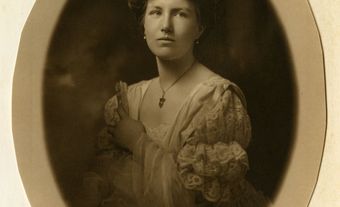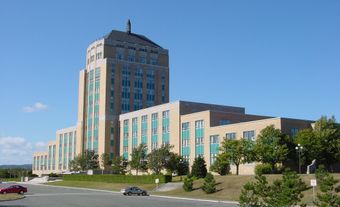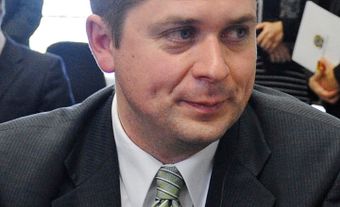This article was originally published in Maclean's Magazine on October 7, 2013
Michael Ignatieff entered politics and came back to Canada to become prime minister. In Fire and Ashes: Success and Failure in Politics , he recounts his experience as a candidate, MP and leader of the Liberal Party of Canada—the contrivances, the frustrations, the joys—and meditates on the nature of modern politics.
Q: Were you naive when you got into this?
A: Well, the first chapter of the book is called “Hubris.” And all I would say, as counsel for defence here, is that I don’t think anybody goes into politics unless they overestimate their abilities and underestimate the difficulties. Sure, there was a lot I didn’t know, about the party, about what had changed about politics since I had last been involved. I underestimated the ferocity of the Conservative attack. I underestimated the ferocity of attack within my own party. But you live and learn.
Q: In that first chapter, you talk about the men in black from the Liberal party coming to see you at Harvard and what they offered you, and you refer to it as an “astonishing proposition.” And you say, “The idea was preposterous. Who did I think I was?” Doesn’t that almost confirm the things the Conservatives said about you? That you were “just visiting”?
A: No, absolutely not. I’m a Canadian. I’ve always been a Canadian. I wouldn’t have even had dinner with these people if politics, and Canadian politics, wasn’t part of my life since as far back as I can remember. I came back because I thought I could do something useful. I could stop being a spectator. But the Conservative attacks—I spent 5½ years in the game, and they never once attacked a thing I said, they only attacked who I was. I don’t think that’s good for politics.
Q: But attack ads have always been around.
A: No question, and I think there are good attack ads and bad attack ads. I think there are attack ads that attack the policy, attack the idea. To the argument that ’twas ever thus, I would say, yes, we took some pretty rough shots at Harper in the 2004, 2006 elections, so I don’t want to be pious about this, but I would insist the size, the volume, the intensity, the cost of these attack ads by a sitting prime minister against two leaders of the opposition in a minority government were without precedent in Canadian politics. It’s not a good precedent.
Q: You’d watched Stéphane Dion go through this. Did you underestimate how it could be done to you?
A: I think that’s probably true. And I think I may have been slow, in fact, to respond to it. At first, there was a kind of, “I can’t take this seriously.” But it began to percolate, and I just felt I was being denied standing in my own country. I could talk, I could speak, but no one was listening because everybody said, “He’s just visiting.” I’d seen it happen once before, with John Kerry and the Swiftboat attacks in 2004. Interestingly, I ran both the Kerry-Swiftboat attacks, and the attack ads against me, in my classes at Harvard in the spring, and it was kind of emancipating or freeing to see them. I can laugh about it now. But at the time, when you turn on the Super Bowl between the halfs and see yourself on the screen, it wasn’t my favourite experience, I can tell you that.
Q: If the party had had the money, what would you have done to respond?
A: It’s a good question, and I can’t do what’s called a retrospective hypothetical because we didn’t have the dough. They spent, I don’t know what the number is, but it was a very big number and it was out of our reach. As you know, we went on a bus tour and I had a wonderful time doing that, but we met maybe half a million people across the summer. But you just can’t meet enough people to counter a major ad buy on the major commercial network every night of the week. So could we have done anything? The trap here is, if you get hit with a negative, you reply to the negative and then you contribute to the problem that you’re objecting to. I hope, had we had $12 million, we would have said positive things about our vision of the country and shown me smiling in all kinds of agreeable and ingratiating ways, but I don’t want to be pious. I can’t tell you what we would have done if we’d had $12 million.
Q: You talk about the period between September 2009 and December 2009, when it was particularly rough and you had to get yourself up for question period. How close did you come to quitting?
A: Oh, there was no question of quitting. But I had a difficult time. Politics is a tough game. But would I change places with a trauma nurse in an emergency ward on a busy Saturday night? No way. There are lots of jobs in the world that are tougher than politics. The stuff that kills you in politics is not what the press are saying, and it’s not the attack ads. It’s the mistakes you make yourself. You think, “I shouldn’t have moved that non-confidence motion; it was a tactical mistake that did me damage.” So that’s what eats you up.
Q: You write about your relationship with Bob Rae. How strained was that relationship?
A: We go back a long way. It’s actually generational; our parents were friends. And it’s kind of simple: He wanted what I wanted and both of us couldn’t have it. Of course, it strained the friendship. It’s mostly in that 2006 convention that there was an issue. After that, we served in the same caucus. He served under me as leader; there was no issue of disloyalty. And I never lost sight of the fact that if there was a big political lift to be done, he was the guy to do it. I’m very struck by how [much] loyalty there was in politics. If it was just a pure Machiavellian game of betrayal, no political party would hold together. Loyalty is, in fact, the driving virtue of politics, and what I’m saying about Bob is that, for all our disagreements, he was loyal to me as leader. That counts a lot.
Q: How much could you have done differently that would have changed the story?
A: I think I underestimated the structural weaknesses of the party. We’d been bleeding votes for awhile. I didn’t have a deep enough understanding of the weaknesses in the brand, in Quebec and elsewhere. I think things might have been different, had I won in 2006. I think I would have had a longer time to find my feet.
Q: But for all the weaknesses of the party, you do still take responsibility, as the man in front, for everything that happened, no?
A: Oh, no question about it. I’ll never forget going into the caucus room after the defeat in May 2011 and seeing people in tears. They loved doing the job. So you carry forever the sense that it wasn’t just that you lost; it’s that other people who signed up with you and supported you and showed you exemplary loyalty also lost, and it’s very painful to see that. So, of course, I take responsibility for that. At the same time, I am not taking the rap for the party I inherited. I’m just not.
Q: In the days after the election, suddenly, everyone wanted to tell you they had voted for you and everyone was being reassuring. But how hard is it to handle what amounts to personal rejection from millions of people?
A: Well, if you define it as personal rejection, you go crazy. It’s difficult to fail. I wanted to put the word “failure” in the title of the book to say, “This is a book about something we don’t talk about much in politics, or in life, which is failing.” And I wanted to be as straight up about it as I could. I feel, 2½ years later, it’s a distant memory now. But at the time, it was painful.
Q: How does it feel to watch Justin Trudeau?
A: I wish I had numbers like he did. That’s to his credit. You get a certain perspective on Trudeau when you walk down a street in Papineau with him. Just watch him switching between two languages, switching into a bit of Punjabi. It’s a tough, working-class riding in Montreal. It has a strong Bloc Québécois vote. He looks really good when he’s there. I was impressed by that, and that leads me to think he’s a very skilled professional politician, underestimated at your peril.
Q: Could you have beaten Stephen Harper?
A: I think so. Let’s grant him his due. He’s not Prime Minister for nothing. I think he has maintained control of the narrative in a way that, I don’t like it, but it’s effective. Perhaps what one could say is that people weren’t tired enough of him then. Maybe they will be next time. But I want to make it clear: I have plenty of respect for him, as a politician, no question about it.
Q: Presuming he reads it, what do you think Harper takes away from this book?
A: It’ll confirm everything he ever thought about me, I’m sure.
Q: Any regrets?
A: Oh, no, only that I didn’t get there. That’s the thing about politics. You can do things for people: You can get home care for families that need it, you can give them some tax relief, you can strengthen our health system, you can get us an energy policy. The fact that you don’t get a chance to do it is the part you regret. I don’t regret doing it. I just regret not getting there.
Maclean's October 7, 2013

 Share on Facebook
Share on Facebook Share on X
Share on X Share by Email
Share by Email Share on Google Classroom
Share on Google Classroom


